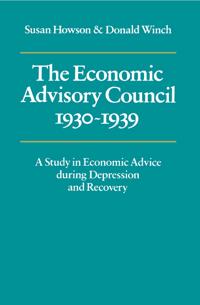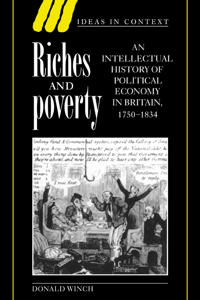Malthus (Pocket)
avDonald Winch
ISBN: 9780199670413 - UTGIVEN: 2013-07-24Thomas Robert Malthus (1766-1834) was an English cleric whose ideas on population and political economy have had a profound influence on modern economic thought. In this Very Short Introduction, Donald Winch considers the context in which Malthus wrote, examines why his work matters, and why it rema[...]
The Economic Advisory Council, 1930-1939 (Inbunden)
avSusan Howson, Donald Winch
ISBN: 9780521211383 - UTGIVEN: 1977-01The experience of the Economic Advisory Council provides the relevant policy background to the Keynesian revolution in economic theory, and to the adoption of the principles of economic management in Britain during the second world war. This study of this pioneering advisory institution against the [...]
Adam Smith's Politics (Häftad)
avDonald Winch
ISBN: 9780521292887 - UTGIVEN: 1978-05For most of the two hundred years or so that have passed since the publication of the Wealth of Nations, Adam Smith's writings on political and economic questions have been viewed within a liberal capitalist perspective of nineteenth- and twentieth- century provenance. This essay in interpretation s[...]
Riches and Poverty (Pocket)
avDonald Winch
ISBN: 9780521559201 - UTGIVEN: 1996-02In Riches and Poverty, Donald Winch explores the implications of a fundamental and influential idea in political economy. Adam Smith's science of the legislator provided a key to studying the rich and poor in commercial societies, transformed an ancient debate on luxury and inequality, and furnished[...]






